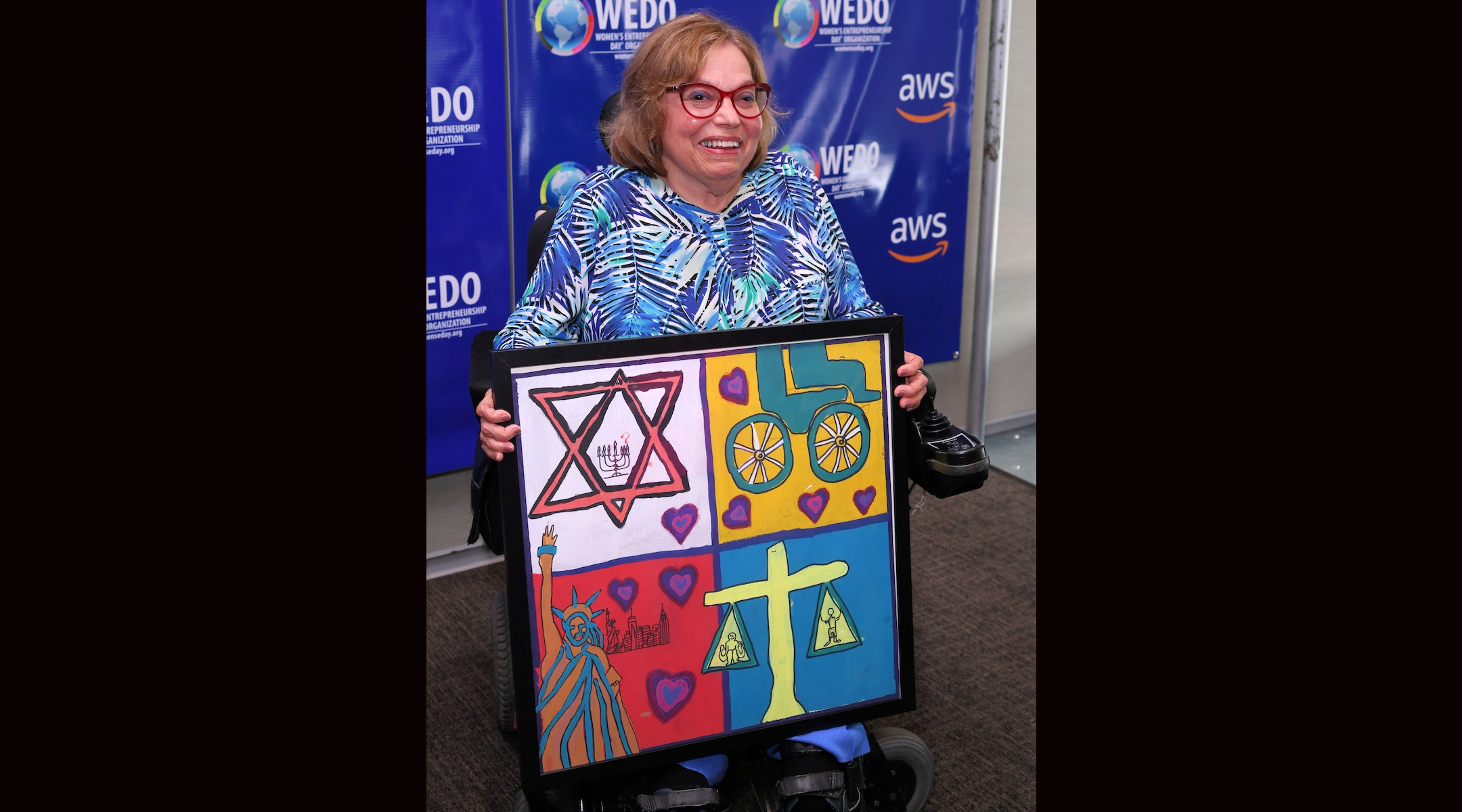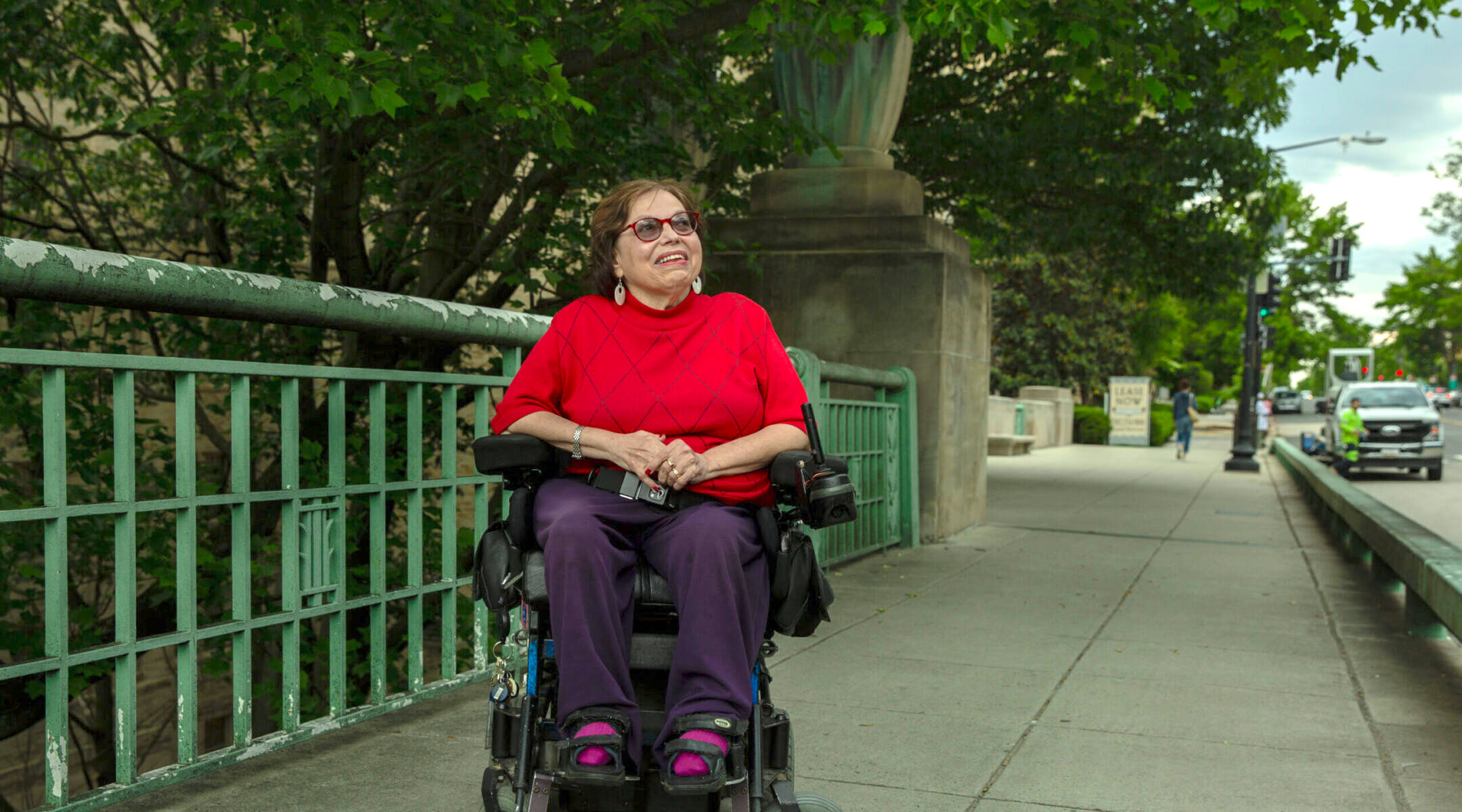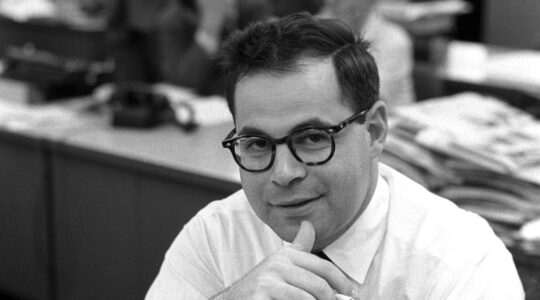(JTA) — In Judith Heumann’s 2020 memoir, the lifelong advocate for people with disabilities describes feeling shocked upon being invited to read from the Torah at her synagogue in Berkeley, California. Not only were women permitted to carry out the sacred task, unlike in the Orthodox synagogue of her Brooklyn childhood, but the bimah, or prayer platform, had been made accessible just for her.
“Oh my God, I thought, I’ve never been asked to do an aliyah,” Heumann wrote, using the Hebrew word for the ritual. “I learned how to do it.”
The moment was just one of many when Heumann, who died Saturday at 75, charted ground that had previously been off-limits to wheelchair users like her. Since contracting polio as a toddler, Heumann broke down barriers for disabled children and educators in New York City schools, protested until federal legislation protecting people with disabilities was passed and advised multiple presidential administrations on disability issues.
A cause of death was not immediately given for Heumann, whose website announced her death on Saturday in Washington, D.C. Heumann had lived there for 30 years, since being tapped by the Clinton administration to serve as assistant secretary of the Office of Special Education and Rehabilitation Services.
Heumann was born in 1947 to two parents who had separately fled Nazi Germany as children in the 1930s; all of her grandparents and countless other family members were murdered in the Holocaust.
She said she believed it was her parents’ experience that led them to reject doctors’ advice to have their daughter institutionalized after she contracted polio and lost the use of her legs. “They came from a country where families got separated, some children sent away, others taken from their families by the authorities and never returned — all part of a campaign of systematic dehumanization and murder,” she wrote in her memoir, “Being Heumann.” “Their daughter, disabled or not, wasn’t going anywhere.”
Instead her parents, and in particular her mother, Ilse, set about to advocate for her. When the city school system said Judith could not attend her neighborhood school, Ilse got a rabbi to agree that she could attend his yeshiva if her daughter learned Hebrew. Judith did, but the rabbi did not keep his word. Instead, Ilse lined up an array of activities for Judith, including thrice-weekly Hebrew school classes accessible only if her father carried her in her chair up a flight of stairs, until the city opened a program for children with disabilities.

Judy Heumann attends the 2022 Women’s Entrepreneurship Day Organization Summit at United Nations in New York City, May 20, 2022. (Chance Yeh/Getty Images)
There, Heumann wrote, she first encountered “disability culture” — what she described as “a culture that has learned to value the humanity in all people, without dismissing anyone for looking, thinking, believing or acting differently.” She would experience and then help craft this culture during a decade at summer camp, in a movement captured in the 2020 documentary “Crip Camp,” and then throughout a lifetime of advocacy that earned her the moniker “mother of the disability rights movement.”
One notable win came in 1970, after Heumann graduated from college with a degree in speech therapy. Told that she could not teach in New York City schools because she could not help children leave in case of fire, Heumann sued. She was represented in part by an attorney who would argue Roe v. Wade in front of the Supreme Court, and the case came before Judge Constance Baker Motley, the only woman on the NAACP legal team that argued Brown v. Board of Education. The city quickly settled and Heumann ultimately got a job at her old elementary school.
The public fight propelled Heumann into the leadership of an inchoate disability rights movement. Two years later, she participated in New York City protests in favor of federal anti-discrimination laws that President Richard Nixon ultimately signed. In 1977, she was one of dozens of disability advocates to occupy a federal building in San Francisco in a demonstration calling for enforcement mechanisms. Their advocacy led to Section 504, a federal statute that requires entities receiving government funds to show that they do not discriminate on the basis of disability.
The episode was dramatized on Comedy Central’s “Drunk History.” Heumann was played by Ali Stroker, a Jewish actress who was the first wheelchair user to perform on Broadway. Heumann was also recognized as Time Magazine’s 1977 Woman of the Year in a 2020 retrospective.
Heumann was a cofounder of the Center for Independent Living in Berkeley before returning to the East Coast and the government advisory roles. Through it all, Heumann remained involved with the Jewish communities where she lived, including by having a bat mitzvah ceremony as an adult. In Washington, she was a member of Adas Israel Congregation.
In 2016, she cited tikkun olam, the ancient rabbinical imperative to repair the world, at a White House event during Jewish Disability Awareness and Inclusion Month. “The Jewish community has an obligation, I believe, to be leaders,” said Heumann, then special advisor for international disability rights in the State Department.
She also traveled as an adult to her father’s hometown in Germany, Hoffenheim, where she was taken to the site of the synagogue that the Nazis destroyed but noted that no one there spoke openly about what had happened to the local Jews.
In “Being Heumann,” she connected the experience to her own efforts to bring people with disabilities into the mainstream. “What a pervasive influence silence and avoidance have had on my life,” she wrote. “Why wasn’t I in school? Silence. Why aren’t we allowed on buses? Silence. Why can’t disabled people teach? Silence. Where are all the Jews going? Piercing silence.
“I refuse to give in to the pressure of the silence,” she concluded.
Heumann’s allies in the Jewish disability advocacy community mourned her death.
“So sad to learn of Judy Heumann’s passing,” tweeted Jay Ruderman, whose family foundation has been a leader in supporting Jewish disability inclusion. “She was one of the preeminent disability rights leaders in our country’s history and her accomplishments made our world a better place. I’ll miss you Judy and may your memory be a blessing.”
JTA has documented Jewish history in real-time for over a century. Keep our journalism strong by joining us in supporting independent, award-winning reporting.






